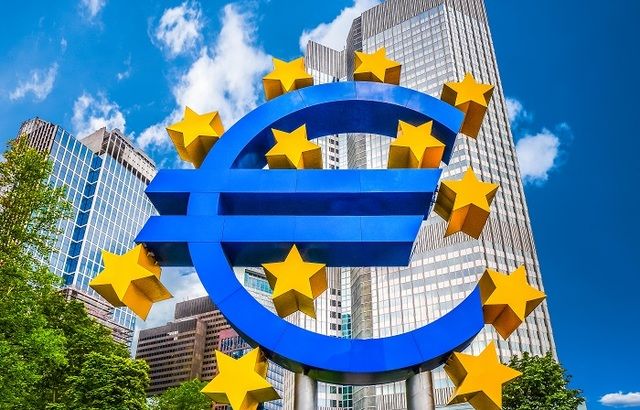But what does this mean for fixed interest markets supported by QE for so long? Consultancy Pantheon Economics has suggested government bonds should be able to cope, but it has queried whether that also applies to corporate credits.
In a note, it says: “We have little objection to the idea that sovereign bond markets will take the end of QE in their stride. Excess liquidity in the eurozone economy remains ample, and economies in the periphery now run external surpluses. This means that they can finance themselves without the help of foreign inflows, even as the ECB exits the market. Commercial banks, particularly, are poised to increase their demand for government bonds.”
Pantheon suggests that even Italy, which might have been judged most vulnerable, looks reasonably robust.
As the note continues: “Italy is an important test for this theory. It would be logical to expect Italian bonds to suffer most as QE draws to an end, but economic conditions in Italy have changed dramatically since the sovereign debt crisis. The country runs a current account surplus of over 2.8% of GDP, and overnight deposits in the private sector are growing by 8% to 9% year-over-year.”
This, says Pantheon, compares with an external deficit of 4% in 2011.
Fundamentals support sovereigns
But what are the views of fixed interest managers?
Looking at the withdrawal of QE, Mitul Patel, head of interest rates at Janus Henderson, says: “On the sovereign side, as we have seen in the US and UK, it is not clear that government bond yields do necessarily rise particularly at the long end. Given that the European recovery is quite well entrenched and the underlying credit quality of a lot of sovereigns is improving, there is a better fundamental story behind a lot of sovereigns even with Italy as a bit of laggard.
“If you look at the share of international reserves which are held in the euro compared with the dollar, it is still at pretty low levels compared to history. There is more support that should come through. Longer term, the euro should be up towards $1.30 or $1.40. There should be support. When central banks do QE international reserve managers shy away from currencies that have done it. I wouldn’t be surprised we should see a lot of money coming back in.”
Corporate debt less certain
However, Pantheon is much less certain about the prospects for corporate debt. Among other things, it notes that the ECB bond buying programme is still supporting £6bn of corporate bond purchases down just £1bn.
It adds: “The ECB has, for all intent and purposes, become the market for non-financial debt in the eurozone in the last 24 months. Additionally, if we are right and the ECB continues to buy about €6bn per month, the end of private QE will be a hard stop in Q4, unlike the gradual reduction of purchases in government bonds.”
Patel says: “It is something we have been spending a lot of time to think about. At the moment, our team struggles to differentiate between different corporates on credit quality because everything is bought up. I think once the support of the market goes away there should be more differentiation.”
Rachid Semaoune, who runs the Royal London Asset Management European Corporate Bond fund, says there are nine months of asset purchase by the ECB until 30 September, but he does not believe QE is not going to stop there.
“It will continue to taper to a lower monthly amount,” he says. “The impact on the market in credits should be gradual.”
Compressed spreads
Regarding the levels where corporate bonds trade, Seamoune notes that the investment grade market currently trades beyond fundamental value.
“By that I mean spreads are very compressed,” he adds. “They are compressed by credit rating, but if you look at how much additional spread you are being paid for a triple-B corporate compared with single-A corporates, you are only paid 27bps.
Semaoune says that extra spread of 27bps is at the tightest ever, even compared pre-financial crisis. This is a direct effect of the ECB programme and has made the maturity curve extremely flat.
“You are being paid very small extra spread to hold a 20-year corporate bond versus a 10-year corporate bond for the same entity. That is another direct effect of QE.”
He adds: “We know in an environment where there is no QE, triple-B spreads should be further from single-A spreads and longer dated bonds should trade at a higher yield or a wider spread than shorter dated bonds. The part of the market that is most at risk of further tapering of QE is longer dated euro-dated credits and the lower rated parts such as triple B.”
Semanoue is underweight longer dated euro credit, overweight in shorter-dated maturity and hopes to have an overweight in financials because he believes financials, once QE is no longer around, “are going to suffer less than non-financial corporates”.
Anjulie Rusius, deputy fund manager on the M&G gilt and fixed interest fund, and M&G index-linked bond fund is confident peripherals will outperform developed market European bonds when QE unwinds.
She explains: “Firstly, because they have been, on a relative basis, under-bought during the capital-key process. And secondly, a reversal in QE is a positive change, as it’s indicative of improvement across the eurozone. Peripherals sell-off on a risk-off, but this would be akin to a ‘risk-on’ improving global environment.”







